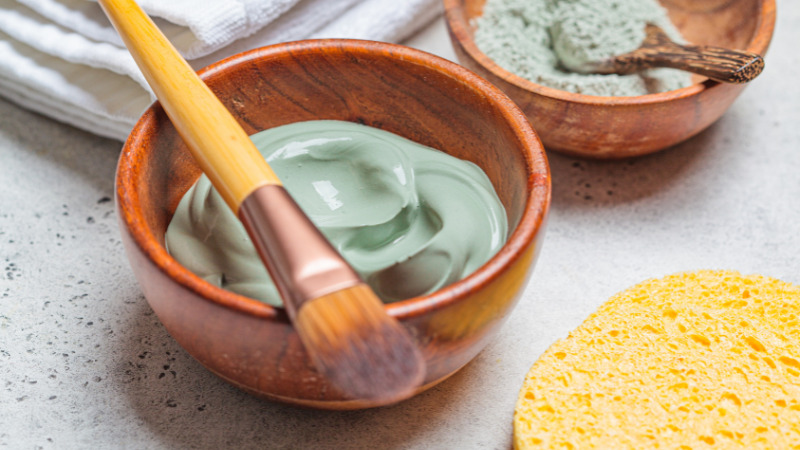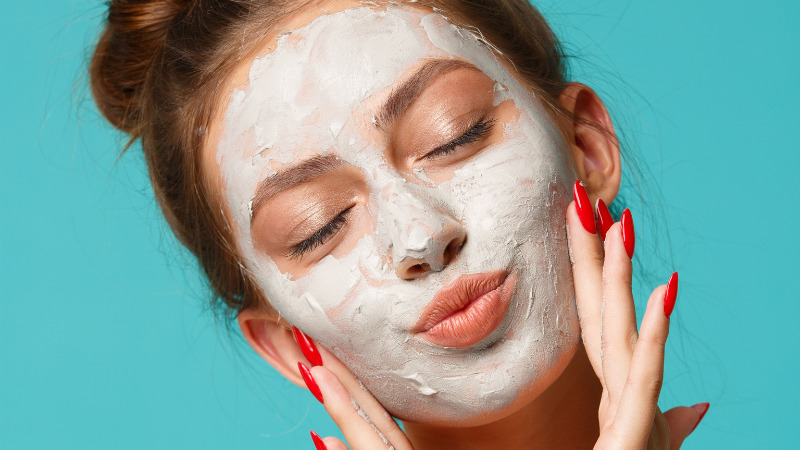How to Store Clay Mask Properly
Clay masks are popular for their ability to cleanse, absorb excess sebum, and minimize pores. However, to optimize their effectiveness, proper storage is crucial. This article provides a comprehensive guide on how to store clay masks correctly, ensuring their quality and efficacy are preserved.
1 Instructions for Optimal Clay Mask Storage
 Instructions for Optimal Clay Mask Storage
Instructions for Optimal Clay Mask Storage
To maintain the potency of your clay mask during use, proper storage is essential. Always **store your mask in a cool, dry place, away from direct sunlight and excessive heat**, as these can dry out and alter the mask’s composition. **Tightly close the lid after each use** to prevent contaminants and bacteria from entering, ensuring hygiene and preserving the product’s quality.
When using the mask, **employ a designated spatula** to extract the product, avoiding direct contact with your fingers to prevent bacterial transfer from your hands to the mask.
Take note to **avoid storing your mask with strongly scented cosmetics like perfumes or body washes**, as these may compromise the product’s quality. Additionally, monitor the expiration date to ensure effective and safe usage.
2 Refrigerating Clay Masks: Pros and Cons
 Refrigerating Clay Masks: Pros and Cons
Refrigerating Clay Masks: Pros and Cons
Benefits:
- Preserves freshness: The cool temperature extends the shelf life, inhibiting mold and bacterial growth.
- Enhances cooling sensation: When applied to the skin, a chilled mask provides a refreshing feel, minimizing pores and soothing mild irritations.
- Improved texture: Refrigerated clay masks become thicker, spreading more evenly and adhering better to the skin, reducing the risk of dripping at room temperature.
Drawbacks:
- Mask drying: The top layer of the mask can harden, leading to wastage.
- Susceptible to odors: If stored with food items, the mask can absorb odors, affecting the user experience.
- Increased bacterial risk: Bacteria from fresh produce can potentially contaminate the mask, posing a threat to skin health.
Refrigeration Guidelines for Clay Masks:
- Maintain a stable refrigerator temperature, adhering to the storage instructions on the product packaging.
- Avoid placing the mask in compartments prone to condensation or leaks, as this can damage and degrade the product.
- Never store clay masks in the freezer, as this will diminish the skincare benefits of the ingredients.
- Always seal the lid tightly and wrap the product securely before refrigerating. This protects the mask from absorbing odors and cross-contamination with food items.
- Use the mask within 2 months of opening.
3 Common Clay Mask Storage Mistakes to Avoid
 Common Clay Mask Storage Mistakes to Avoid
Common Clay Mask Storage Mistakes to Avoid
Storing your mask in the freezer or at an improper temperature in the refrigerator: Extreme temperatures can alter the mask’s consistency, affecting its quality and effectiveness.
Placing the product near pungent food items: Odors from food can permeate the mask, compromising its aroma and efficacy.
Failing to seal the packaging thoroughly after use: This exposes the mask to dryness, oxidation, and bacterial contamination, leading to spoilage.
Neglecting regular refrigerator cleaning: A dirty refrigerator harbors bacteria and mold, which can compromise the mask’s quality.
Inconsistent temperature adjustments: Frequent temperature fluctuations accelerate mask deterioration.
Leaving the mask in warm areas: Excessive heat dries out the mask, reducing its benefits.
Direct sunlight exposure: Sunlight can degrade the ingredients in the mask, diminishing its efficacy.
Using the mask past its expiration date: This may cause skin irritation and reduce effectiveness.
Proper storage of clay masks ensures their optimal quality and performance. By following these guidelines, you can maximize the benefits of your clay mask for healthy, radiant skin.





























